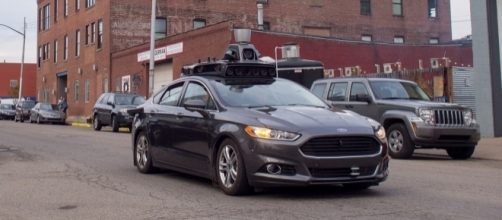A high-speed crash between an autonomous Uber Volvo Xc90 SUV and another vehicle was reported on Friday. According to Wired, the accident happened in Tempe, Arizona when the driver reportedly failed to yield the right of way. As a result, the ride-sharing company suspended its national autonomous vehicle testing program in February.
Two Uber engineers were riding in the autonomous vehicle when it flipped over. No customers aboard and no serious injuries have been reported. CNBC states that the move to put the pilot program on hold has suspended Autonomous Car testing programs in Arizona, Pittsburgh, and San Francisco.
This is not the first crash involving a self-driving car. Last year, an autonomous car operated by Google Inc. (Nasdaq: GOOG, GOOGL) hit a bus in California, and a man was killed in Williston, Florida after his Tesla, Inc. (Nasdaq: TSLA) Model S, operating in autopilot mode, crashed with a truck.
Autonomous cars seen making roads safer
Wired wrote that Friday's crash "proves why we need self-driving cars." When Uber launched the autonomous car pilot program in Pittsburgh, it explained that the technology was still dependent on "human intervention in many conditions, including bad weather." Despite this, the firm expressed the belief that the technology has the potential to "reduce the number of traffic accidents" in the United States.
BREAKING: Self-driving Uber vehicle on it’s side after a collision in Tempe, AZ.
— Fresco News (@fresconews) March 25, 2017
Photos by @fresconews user Mark Beach pic.twitter.com/5NCF2KG0rW
While there appears to be real, altruistic motivation behind the introduction of self-driving cars, they are also big business. Investors are described "salivating" at the potential for a transportation industry that doesn't depend on "profit-thinning human drivers." Other companies involved in autonomous car testing include Ford Motor Company (NYSE: F), General Motors Company (NYSE: GM), and Nissan Motor Co., Ltd. (OTC: NSANY). Estimates from Boston Consulting Group see the industry growing to be valued at $42 billion by 2025.
Delphi: fatal accidents to be reduced by 80 percent
Research from Delphi Automotive PLC (NYSE: DLPH) states that autonomous driving technology has the potential to reduce fatal accidents by 80 percent, which Wired described as fruit "hanging so low, it's brushing the ground." New technology that would allow driverless cars to communicate with those operated by people is already being deployed, and could reduce the number of crashes involving vehicles piloted by humans.
A potential accident caused by a human driver who was about to "blow through" an intersection where they didn't have the right of way could be avoided if self-driving cars were able to communicate with each other; autonomous cars who had the right of way could be programmed to yield to other vehicles not following the rules of the road. Uber is described as being yet to be "embrace" this new car-to-car communications technology.

